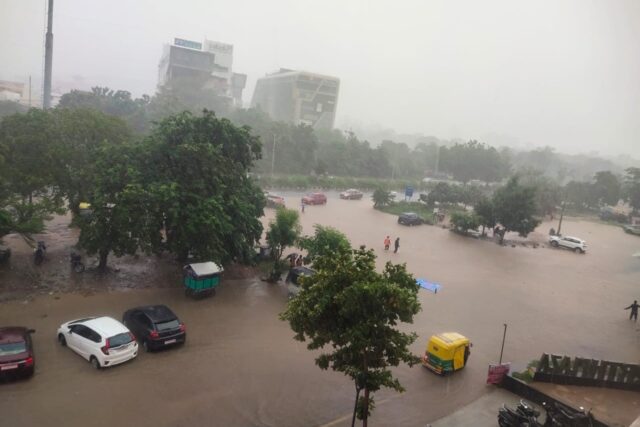NEET Paper Leak Spurs New Legislation to Prevent Exam Malpractices

In a significant move to tackle examination malpractices, Union Home Minister Amit Shah inaugurated the ‘Fast Track Immigration Trusted Traveller Programme’ (FTI-TTP) at Delhi’s IGI airport. This initiative coincides with the introduction of a stringent law aimed at preventing NEET paper leaks and other exam irregularities, which have marred India’s competitive exams landscape.
Effective from June 21, 2024, the Public Examinations (Prevention of Unfair Means) Act, 2024, was enacted following a notification by the Personnel Ministry. This law imposes severe penalties, including a maximum jail term of 10 years and fines up to Rs 1 crore for those found guilty of leaking exam papers or engaging in other unfair means.
Latest News on NEET Paper Leak:
- ‘Solver Gang’ Behind NEET Paper Leak, Cops Arrest Mastermind Ravi Atri
Addressing the NEET Paper Leak Crisis
The NEET paper leak has been a recurring issue, compromising the integrity of one of India’s most crucial medical entrance exams. Such leaks not only undermine the credibility of the examination system but also cause immense distress to the millions of students who prepare diligently for these exams. The latest incident highlighted the urgent need for comprehensive measures to safeguard the examination process.
New Law Details
The newly enacted law applies to public examinations conducted by various bodies, including the Union Public Service Commission (UPSC), the Staff Selection Commission (SSC), and the National Testing Agency (NTA), which conducts NEET. The law introduces:
- Severe Penalties: Offenders can face 5 to 10 years of imprisonment and fines up to Rs 1 crore, depending on the nature and severity of the malpractice.
- Stringent Verification: Applicants for trusted traveler programs like FTI-TTP must undergo rigorous verification, including biometric submissions and detailed background checks, ensuring only eligible candidates benefit from expedited processes.
Reactions and Implications
Union Education Minister Dharmendra Pradhan emphasized the government’s commitment to restoring trust in the examination system. He acknowledged the “moral responsibility” of the administration to maintain the integrity of public exams and address the loss of faith among students.
Opposition parties, however, viewed the legislation as a reactive measure. Congress leader Jairam Ramesh described it as “damage control” and stressed the importance of preventive measures to stop leaks from occurring in the first place. He highlighted the need for robust systems and procedures to ensure the security of exam papers.
The Broader Impact
The introduction of the Public Examinations (Prevention of Unfair Means) Act, 2024, marks a critical step in addressing the systemic issues plaguing India’s examination system. By imposing strict penalties and enhancing security measures, the government aims to deter malpractice and protect the interests of millions of honest students.
Future Steps after NEET Paper Leak
While the new law provides a framework for tackling examination malpractices, continuous efforts are required to ensure its effective implementation. This includes:
- Enhanced Surveillance: Increasing surveillance at examination centers and during the transportation of exam papers.
- Technological Integration: Leveraging technology, such as blockchain and biometric verification, to secure the examination process.
- Public Awareness: Educating students, parents, and educational institutions about the importance of ethical practices and the severe consequences of engaging in unfair means.
Conclusion
The NEET paper leak and similar incidents have highlighted the vulnerabilities in India’s examination system. The enactment of the Public Examinations (Prevention of Unfair Means) Act, 2024, represents a significant step towards addressing these issues. By implementing stringent measures and fostering a culture of integrity, the government aims to ensure a fair and transparent examination process, upholding the aspirations and hard work of millions of students.







